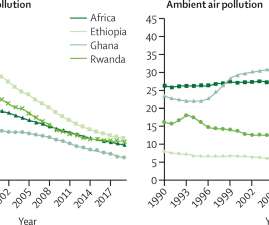Study: air pollution caused 1.1M deaths across Africa in 2019, toll from outdoor pollution rising
Green Car Congress
OCTOBER 11, 2021
Specific recommendations include: Invest in clean renewable energy, in particular taking advantage of solar and wind power resources and reducing reliance on coal, oil, and gas.












Let's personalize your content